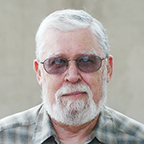Politics
Language Evolution: New Words Challenge Traditional Meanings

Language is constantly evolving, and its dynamics can sometimes lead to confusion or frustration. On October 29, 2025, columnist TJ Ray explored this phenomenon, discussing how new words and phrases enter the lexicon and the challenges that come with them. A term like “lethologica” aptly describes the feeling of being unable to recall a specific word, a common occurrence in everyday life.
According to the website LanguageMonitor.com, a new word is coined approximately every 98 minutes. The English language officially surpassed its one millionth word in 2009. This rapid development means that new terminology can significantly alter the way we communicate. Over time, words can mutate in meaning, often losing their historical context as society adapts them to current usage.
Ray highlighted how many of us rarely consider the origins of words. For example, the term “Wednesday” is derived from the god Odin, yet most people do not associate this day with Norse mythology. Similarly, the term “halibut” originally referred to a holy flounder, but its roots are largely forgotten in modern vernacular.
The introduction of new phrases can lead to misunderstandings or linguistic discomfort. Ray cited a recent example where a four-star Coast Guard admiral referred to “BP” as the “only modality for solving the problem.” The use of “modality” left many listeners puzzled. Such instances underline the potential for jargon to alienate rather than clarify.
Television talk shows often serve as a breeding ground for unconventional language. Ray pointed to a business channel where a commentator stated that a government option would “incent” the market, a term that many listeners found to be inappropriate. In another instance, a panel discussion featured the term “analyzation,” which raised eyebrows for its awkwardness.
Sports commentary also reflects this trend, with analysts frequently adopting new terminology. For example, during the recent World Cup Soccer tournament, players were frequently noted for their “physicality.” This usage raises questions about the distinction between “physical” and “physicality,” as both terms describe attributes observable in athletes.
Ray humorously noted that while one might expect all players to display “athleticism,” the word seems to highlight a select few, leading to further confusion about its proper application. The proliferation of such terms can leave audiences feeling bewildered.
In a lighter tone, Ray referred to a politician who claimed she would “refudiate” certain matters, showcasing the ongoing struggle with language and its evolving nature. This playful yet critical observation emphasizes that even seasoned speakers can find themselves grappling with new expressions.
As the English language continues to grow and adapt, it remains essential to engage with these changes thoughtfully. Whether it is through the adoption of new words or the reinterpretation of existing ones, staying informed can help mitigate the confusion that arises from linguistic evolution.
Ultimately, Ray’s commentary serves as a reminder that while language is a living entity, its constant transformation can pose challenges for those trying to keep pace with its developments. The journey of understanding and adapting to new linguistic norms is ongoing, inviting everyone to participate in this dynamic conversation.
-

 Science2 weeks ago
Science2 weeks agoResearchers Challenge 200-Year-Old Physics Principle with Atomic Engines
-

 Politics2 weeks ago
Politics2 weeks agoNHP Foundation Secures Land for 158 Affordable Apartments in Denver
-

 World5 days ago
World5 days agoBoeing’s Aircraft Production: Assessing Numbers and Challenges
-

 Entertainment4 days ago
Entertainment4 days agoSyracuse Stage Delivers Lively Adaptation of ‘The 39 Steps’
-

 Health2 weeks ago
Health2 weeks agoNeuroscientist Advocates for Flag Football Until Age 14
-

 Lifestyle2 weeks ago
Lifestyle2 weeks agoLongtime Friends Face Heartbreak After Loss and Isolation
-

 Science4 days ago
Science4 days agoAI Misidentifies Doritos Bag as Gun, Triggers Police Response
-

 Lifestyle3 days ago
Lifestyle3 days agoTrump’s Push to Censor National Parks Faces Growing Backlash
-

 Lifestyle4 days ago
Lifestyle4 days agoRed Bluff High School’s Elli Nolan Named Rotary Student of the Month
-

 Business2 weeks ago
Business2 weeks agoSpirit Airlines Cuts Workforce with Furloughs for 365 Pilots
-

 World2 weeks ago
World2 weeks agoGlobal Military Spending: Air Forces Ranked by Budget and Capability
-

 Top Stories5 days ago
Top Stories5 days agoUrgent Search for Suspect Who Exposed Himself to Teen Girl








